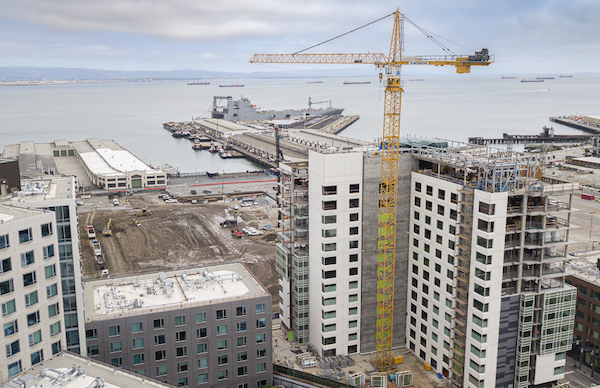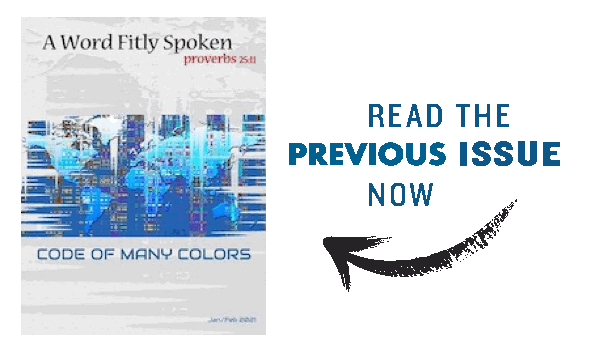
What Does One Job Posting Tell Us About San Francisco? Maybe Nothing. Maybe Everything!
JOE ESKENAZI
In the wake of corruption and arrests and turbulence, a power struggle ensues.
The vacant “Deputy Director III” position for the Department of Building Inspection pays up to $205,000 a year. The recipient of this job is required to hold a high school diploma or GED — but, under the “educational substitution” provision, one needn’t possess any education at all if he or she has two additional years of experience in the field.
This vacancy was posted on the city’s website on Jan. 27. The deadline to apply was listed as Feb. 3. When I emailed on Jan. 29 to inquire about this jarringly quick turnaround, I was informed that the deadline would now be extended to Feb. 12.
So, that’s nice. But, as a point of reference, San Jose’s building department recently advertised for an essentially equivalent deputy director upper management position. It required a college degree and preferred a master’s — as well as additional professional licensing. Far from a ludicrous one-week window, it kept its posting active for more than a month. And, most importantly of all, it posted the vacancy on the jobs board of the International Code Council , perhaps the foremost authority on building codes — thereby ensuring the nation’s most qualified building inspection professionals were notified of this job opening.
If the goal is to attract the best and the brightest people to run your department, why wouldn’t you do this?
San Francisco’s job, incidentally, boasts a top salary nearly $12,000 higher than San Jose’s, despite far thinner requirements. You’d think building professionals nationwide would notice this, and factor it into their decisions.
But they don’t, because San Francisco’s job is only posted in-house, and for a rather short period of time. And, in the not-so-likely event they even notice San Francisco’s offer, savvy professionals will read between its lines and take its meaning: It’s not for them.
“When something is posted for a week, it means there’s an incumbent or someone they want to have the job,” said a longtime DBI insider. “This is the way they do business in the city. When something turns around that quick? It means they already have someone for the job.”
Our queries about the quick turnaround were described by a DBI spokesperson as par for the course: “We post job opportunities for anywhere from one week to two weeks or more, so there is nothing unusual about this posting.”
Ay, there’s the rub.

San Francisco’s Department of Building Inspection is a remarkably insular place. Its hiring practices are the sort of thing one might expect to read about in a history book; it harks to a 19th-century custom house with spittoons on the desks.
There have been not one but, rather, several father-and-son combos working inspection details. Perusing nearly a decade’s worth of hires, one uncovers alarming chains of nieces and nephews and brothers and sisters and in-laws and spouses and godchildren of department employees or powerful figures in the building community. These were often exempt positions, requiring no testing.
That might be okay if the DBI was run by a bunch of Boy Scouts. But it isn’t: Its erstwhile chief, Tom Hui, was ousted in March 2020 for essentially having turned over management of the department to an outsider, Walter Wong , for the better part of a decade. (Wong pleaded guilty in June to federal fraud and money-laundering charges and began cooperating with the feds to nail his high-placed former buddies . None of that, however, touches on the degree of ownership he exerted over DBI for years and years).
That might be okay if the department functioned well. But it doesn’t: The Department of Building Inspection has matched its reputation for scleroticism with a history of astonishing corruption: “Permit expediters” like Wong and their clients sail through a system in which everyday people sink ; perhaps it helps to have so many nieces and nephews and brothers and sisters and in-laws and spouses and godchildren on the inside. Favored builders, and their expediters like Rodrigo Santos ( AKA “Ro DBI go” ), never seem to have trouble obtaining permits or passing inspections — and brazenly operate with impunity, even in the event they actually are flagged.
And that might be okay if a wide array of candidates were able to find jobs here. But they aren’t. The latest racial equity data from DBI confirms what everyone already knew: This is a strikingly striated department — in large part because of the years of nepotistic hiring practices within certain silos.
On the inspection side, 67 percent of building inspectors are white; 71 percent of electrical inspectors are white; and 81 percent of plumbing inspectors are white. The data doesn’t go into detail, but a goodly percentage of those inspectors are of Irish heritage.
On the plan-check side, 56 percent of permit technicians are Asian. Of the engineers, 87 percent are Asian.
There are, incidentally, no Black building inspectors, plumbing inspectors, or engineers.
“This place is run by two fiefdoms — the Irish and the Asians,” sums up one longtime employee. DBI’s horizons are narrow when it comes to hiring, and promotions tend to be in-house — which only perpetuates things.
“On occasion, we go outside,” said a frustrated employee. “But we don’t often reach beyond these walls.”

So, this is the prism through which to view the Deputy Director III position. A DBI spokesperson expressed hopes of “attracting a broad range of qualified candidates so that we have a great candidate pool.” And that may yet happen. But all signs point to something otherwise.
We must also view this hire as being one made in a post-Hui, post-Wong world. Wong, of course, is the biggie here; if Hui didn’t allow Wong his personal run of DBI, he would have been replaced by someone who did.
But now they’re both gone. And numerous sources within and without DBI say that, absent the gargantuan and unifying figure of Wong, DBI’s two dominant factions are attempting to consolidate power — with the Irish now in the ascendency.
So while this position may yet be filled by the sort of candidate with a San Jose-worthy resume, the smart money is on a veteran in-house candidate with a bloodline tracing back to Ireland, who is eligible for the post due to its relaxed educational requirements.
This forthcoming deputy director will control the department’s inspection group. And if he’s an internal hire, even if he is not personally corrupt, he has thrived and advanced in a corrupt system. He would hardly be the one to alter the status quo, because the status quo got him where he is.
“Inspectors in the field pull the levers nobody can see,” explains a longtime building inspector. “When I go in the field, I can pull those levers. I can hash your job or make things happen that other people cannot.”
So it matters who’s in charge here: The inspectors in the field learn to do the work their bosses want them to do. Pushing projects through — especially projects overseen by connected builders, engineers or permit expediters — “is how an inspector gets promoted.”
“If you’re all in the same camp and you’ve all got the same agenda, where are the checks and balances?” queries another inspector. “There are none.”
In other words: Meet the new boss. Same as the old boss .

So that’s what’s at play. Not that it was hard to glean earlier, but FBI arrests and front-page news made it clear in 2020: DBI is a corrupt, dysfunctional, and cloistered place in which insiders have created and perpetuated systems that work for them at the expense of nearly everyone else.
The question now is whether to entrench that system or demolish it. And it’s clear which way the department’s existing power structure is leaning.
It remains difficult to obtain a demolition permit in this city. Even a metaphysical one.
Meanwhile, in December, DBI employees were treated by management to a coffee cup full of chocolate and candies. On the side of the cup was a message: “Happy Holidays! DBI Team.”
A number of employees here saw this as nothing more than a kindly and sweet gesture. And it may be just that. But others saw more. The term “DBI Team” took them back to all the times they were asked by management to do things they should not do, to benefit the powers-that-be.
To not do these things is to not be a “team player.” And being a team player is valued here.
So, what does it all mean? Maybe nothing. Maybe everything.

